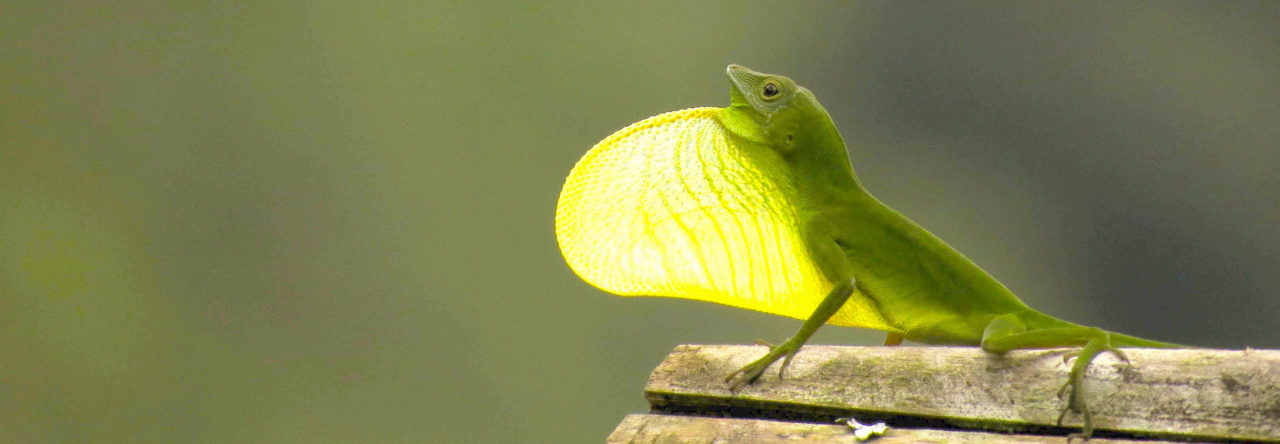This individual might have arrived on Grand Cayman with a shipment of mango trees from Florida. We have some ideas, but want to solicit input from the experts.
Author: Bob Powell
httpv://www.youtube.com/watch?v=u0bkDhKeeQ4
Thanks to the former student, who sent me the link.
During a spring trip to the Dominican Republic, I spent a few nights at a high-rise hotel along the “beach” in Santo Domingo. The hotel had a concrete imprint, totally devoid of grounds. It faced a busy four-lane road and the “malecón.” A narrow band of greenery, often a single row of trees, separates the far side of the street and the high-tide mark. Anolis distichus and naturalized A. porcatus occur in small numbers along that green band. Some ornamental plantings on the fifth floor, accessible only by scaling the outside of the hotel or through the building or parking garage, supported a small number of A. distichus. I observed at least ten individuals engaged in male-male interactions, mating, and movements across a paved driveway to an even smaller planting with a few shrubs paralleling the drive. Although these individuals (or their ancestors) could have colonized this isolated pocket on their own, I believe that it is much more likely that they were introduced with the plants (a few of which were still in plastic pots). I’m guessing that this scenario is not unique and that similar isolated populations of various species exist in comparable situations throughout the islands (e.g., A. cristatellus occupies analogous, albeit not quite such isolated, plantings at the international airport in San Juan, Puerto Rico). Although some gene flow might occur when new plantings arrive, these tiny isolates, composed of no more than a few dozen individuals, are probably genetically isolated and subject to considerable inbreeding. Has anyone ever examined the lizards in such tightly constrained artificial pockets of habitat? That they exist at all, much less appear to function for extended periods, is testament to the extent to which at least some anoles adapt readily to extremely altered situations.



![orange-anole-1[1]_1](https://i0.wp.com/www.anoleannals.org/wp-content/uploads/2014/09/orange-anole-11_1.jpg?resize=411%2C1024&ssl=1)


